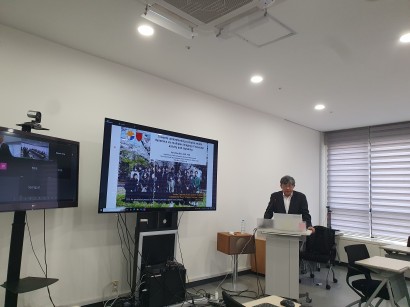Welcome to Kaanglab
Institute for Basic Science
to Explore
Institute for Basic Science
Brain is the most complex structure in the universe, yet defining us who we are.
We are interested in revealing the mysteries of the brain function at the molecular and cellular level.
Especially, we are interested in how memory is stored and retrieved.
In this regard, our research focuses on molecular events underlying synaptic plasticity.
Most synapses are known to be plastic and readily modified by various environmental and learning stimuli.
A change in synaptic efficacy leads to a functional modification of neural circuit to represent new information as a result of learning.
Importantly, altered synaptic structure and function are also implicated in the pathogenesis of brain disorders such as autism, schizophrenia, and Alzheimer disease and so on.
We use cellular, molecular, electrical, optogenetic and behavioral techniques to understand the mechanisms underlying memory and higher cognitive brain functions in normal and transgenic knockout animal models.
How brain works, and what is the mechanism for learning & memory?
#Qdot Tracking #Western Blotting #RNA Interference #Confocal Microscopy #Immunohistochemistry #Viral Gene Constructs #Two-photon Ca2+ Imaging
#T-Maze #Morris Water Maze #Fear Conditioning #Basal Locomotion Tests #Programmable Touch Screen #Optogenetics- combined with in vivo recording
#Patch Clamping #In vitro Local Field Recordings #In vivo Recording from Freely Moving Animal
 25.06.18 Haruhiko Bito's visit
25.06.18 Haruhiko Bito's visit
25.06.18 Haruhiko Bito's visit
view more 2025.05.20~23 FAOBMB 2025
2025.05.20~23 FAOBMB 2025
2025.05.20~23 FAOBMB 2025
view more 25.05.12 Teacher's Day
25.05.12 Teacher's Day
25.05.12 Teacher's Day
view more